
 Flash News
Flash News
Morning Post/ In 2 lines: What mattered yesterday in Albania
4 cars collide in Fier, two people injured
He was carrying a weapon in his apartment! A person was arrested in Maliq
BIRN: Parliament resumes work, removing the floor from the opposition
Checks in Durrës prison, 10 cell phones seized, used by convicts
Two years of violence in Zvecan/ For some, the beginning of the end, for others, a new stability
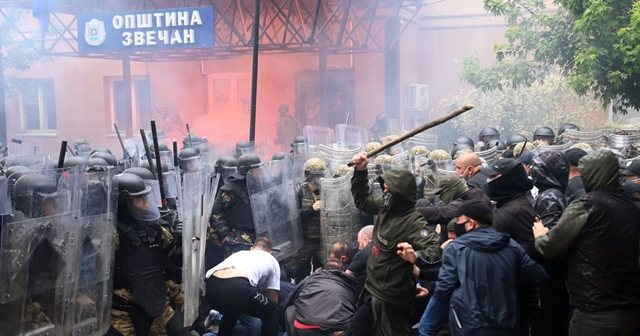
While Kosovo Police say that the current situation in the north of the country – two years after violence between local Serbs and KFOR members – is “calm but delicate” and that “much has changed for the better”, Serb residents of this area say that the situation has never been worse.
The people Radio Free Europe spoke to described their lives after May 2023 as completely different, calling that month a "turning point," when the closure of institutions that operated under Serbia's system in Kosovo began.
On 29 May 2023, a violent clash broke out in Zvečan between Serb protesters and troops from the NATO peacekeeping mission in Kosovo, KFOR. The protest was called against the entry of the Albanian mayor into the municipal building, after Serbs had boycotted local elections at the urging of the Serbian List – the main Kosovo Serb party that enjoys the support of Belgrade. As a result, Albanian mayors came to head the Serb-majority municipalities in the north – North Mitrovica, Leposavic, Zvečan and Zubin Potok.
The clashes in Zvecan left 93 KFOR soldiers stationed in front of the municipal building seriously and slightly injured. Meanwhile, around 50 Serbs were also injured, many of whom later fled to Serbia and are currently inaccessible to justice in Kosovo.
KFOR described the attack on its members as “unprovoked and completely unacceptable,” demanding that all participants in the violence be “urgently prosecuted.” The international mission also expressed hope that authorities in Serbia are also investigating people who returned there after the unrest.
Radio Free Europe/Radio Liberty has requested information from the Basic Court in Pristina and the Prosecutor's Office on the number of people prosecuted so far and on any ongoing proceedings related to the attack on KFOR, but has not received a response. The High Public Prosecutor's Office in Belgrade also did not respond to this question.
What is publicly known in Kosovo is that more than ten people have been arrested in connection with the violence in Zvecan. Some have been sentenced to about a year in prison, after plea agreements with the prosecution. Since their time in custody has been counted, these people are now free, while others have been protected while at large.
On the other hand, it is still unknown whether the Serbian judiciary has opened or is conducting any investigation into the case of the attack on KFOR.
Kosovo Police: Security situation in the north is under control
The Deputy Director of the Kosovo Police for the northern region, Veton Elshani, in a statement to Radio Free Europe recalls that on May 29, 2023, a "small war" took place in Zveçan, as he describes it. But, according to him, today the situation is "completely different."
“The situation is still delicate due to the political aspect, but it is calm ,” says Elshani. He emphasizes that the Kosovo Police now has “full control” over security in the north and that there are no more “armed groups” working for destabilization.
On May 29, 2023, the crowd of Serbian protesters included masked individuals who engaged in clashes with KFOR soldiers using stun grenades, Molotov cocktails, and other forceful means.
These riots became the starting point for new tensions in northern Kosovo, which culminated in September 2023 when a group of armed Serbs attacked the Kosovo Police in the village of Banjska near Zvecan. In that attack, Police Sergeant Afrim Bunjaku was killed, while three Serb attackers were also killed during the exchange of fire.
"There are no more armed groups in Kosovo. As for northern Kosovo, we can say that it is safe. The situation has changed a lot," says Elshani.
He adds that the Kosovo Police is in constant contact with KFOR on issues related to the north and that they jointly organize patrols or exchange important information.
What do citizens say?
Jellena from North Mitrovica tells Radio Free Europe that over the past two years she has felt "lonely and excluded."
"It's like no one cares about people anymore," she says.
According to her, the decisions of Kosovo institutions during this period have negatively affected the life of the Serbian community. As an example, she cites the ban on the use of the dinar and the closure of institutions that operated according to the Serbian system.
"Everything became even more difficult – you have to go all the way to Raška [a city in Serbia] to withdraw the money. Everything is complicated, people don't trust anyone anymore, they feel betrayed," says Jellena.
Serbs in Kosovo receive pensions, salaries or social assistance from the Serbian budget, but since the beginning of 2023, when the Central Bank of Kosovo adopted a regulation that defines the euro as the only allowed currency, these payments have become difficult.
Ivan, also from the north, says that life for Serbs has deteriorated significantly in the last two years.
"Things have gone too far, life has faded, there is no longer any communication with local authorities," he says.
According to him, the situation has been further aggravated by the closure of institutions that were under the authority of the Government of Serbia.
"The streets are empty," he says.
Kosovo considers the institutions, which operate under the Serbian system, to be parallel and illegal structures. The process of closing them down officially began in early 2024, but a major step towards this was the takeover of municipal buildings in May 2023. Before this action, the municipalities of Zvecan, Leposavic and Zubin Potok operated in the same buildings as the so-called provisional municipal bodies of Serbia. In some cases, the mayors of the municipalities were the same in both systems.
Bojana from North Mitrovica says the last two years have been “the worst of her life.” She cites as problems the closure of Serbian institutions, the increased presence of Kosovo Police, and the lack of trust in Pristina institutions and their decisions.
"Everything has gone downhill, nothing good has happened ," she says.
On the other hand, Albanians living in the north experience the situation differently. For them, the security situation "has never been better."
In addition, the process of returning displaced Albanians has also begun. One of them is Zahir Mehmeti, whom the Radio Free Europe/Radio Liberty team spoke with a few months ago. He said he has returned to his home after 24 years, thanks to the help of the Kosovo authorities. Mehmeti also emphasized the good relations with the Serb neighbors in North Mitrovica, where they constitute the majority.
"The situation in the north is always fragile"
Pristina-based security expert Nuredin Ibishi says the current situation in northern Kosovo is calm but remains fragile and that there is always a risk of escalation due to Serbia's influence. Kosovo authorities believe Serbia is behind the attack in Banjska and other tensions in the north, although this is categorically denied by official Belgrade.
In a statement to Radio Free Europe, Ibishi says that after the armed attack in Banjska, evidence has been found of the existence of a paramilitary formation led by Milan Radoićić, who, according to him, often moves near the border with Kosovo. Therefore, he adds, the risk of a possible escalation remains ever-present.
Radoićić, former deputy leader of the Serbian List, has claimed responsibility for the September 2023 attack in Banjska. In Kosovo, he is also linked to criminal activities, corruption, war crimes, the murder of Serbian politician Oliver Ivanović, and the intimidation of witnesses in court proceedings.
“Northern Kosovo remains a potential hot spot. Escalation could occur. Currently the situation is under control – there are no public unrest, attacks on police or journalists, no explosions. The situation is better, but for a lasting stabilization, talks at the political level between Kosovo and Serbia are needed ,” says Ibishi.
Kosovo and Serbia are engaged in a dialogue process to normalize relations with the mediation of the European Union, but dialogue at the political level has been blocked since the attack in Banjska in September 2023./ REL
Latest news


Morning Post/ In 2 lines: What mattered yesterday in Albania
2025-05-30 07:45:56
How will we escape the regime? Lubonja: Berisha is no longer to blame
2025-05-29 22:57:17


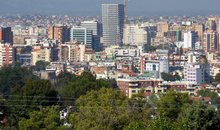
BIRN: Billions missing in economic growth
2025-05-29 22:14:22

Judge's brother bribed prosecutor, worked with gangs, and returned to work
2025-05-29 21:40:15
From Shijak to Lushnje, Berisha shows the armed gangs that helped the SP
2025-05-29 21:29:19


Berisha: Why did Rama hand over the Port of Durres to the Troplini cartel?
2025-05-29 21:08:01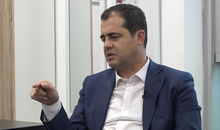
Bylykbashi: This electoral system should have disappeared in 2020, it's not 2008
2025-05-29 20:47:04
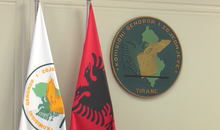
KAS decides to open a box in a VC in Vlora
2025-05-29 20:36:19
Vokshi from the CDI Assembly: Europe must react to the electoral farce of May 11
2025-05-29 20:21:22


4 cars collide in Fier, two people injured
2025-05-29 19:10:12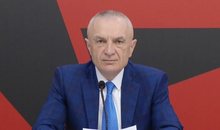

Lawyer shocked: A sniper was paid by Albania to eliminate Prime Minister Kurti
2025-05-29 18:53:46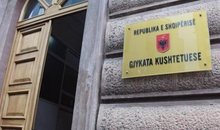


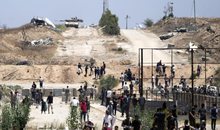
Netanyahu accepts US Gaza ceasefire plan, Hamas 'disappointed'
2025-05-29 17:53:48

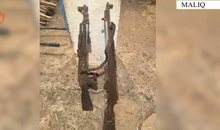
He was carrying a weapon in his apartment! A person was arrested in Maliq
2025-05-29 16:59:51
Hamas receives new ceasefire proposal from US
2025-05-29 16:58:27
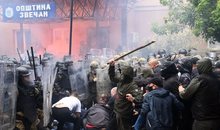

BIRN: Parliament resumes work, removing the floor from the opposition
2025-05-29 16:08:51
Movement in Tirana Police / Crime, road and urban traffic sectors affected
2025-05-29 16:03:00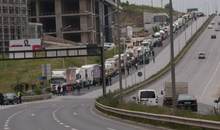
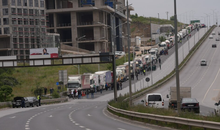
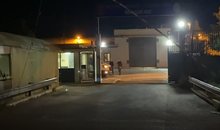

Walnut leaves, learn how to use them for health
2025-05-29 15:26:05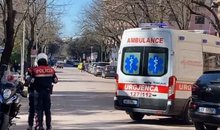
Tirana/ 33-year-old man jumps from the third floor of the building
2025-05-29 15:08:38


Rama appeared alongside Brok, Berisha: Elmar's congratulations to him are ironic
2025-05-29 14:47:06
UN: Russia's drone attacks in Kherson, Ukraine, constitute war crimes
2025-05-29 14:37:56
Lek deposits decreasing for the second consecutive month
2025-05-29 14:34:19

Three people involved in drug trafficking are extradited to Italy
2025-05-29 14:08:06
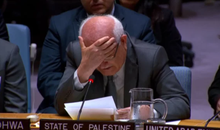

What do we see when we die? The activity of the dying brain provides some clues.
2025-05-29 13:43:08
DP gathers political leaders at blue headquarters
2025-05-29 13:28:52
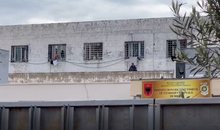
Checks in Durrës prison, 10 cell phones seized, used by convicts
2025-05-29 13:12:14
Banks worried about property prices
2025-05-29 12:58:06
Marriage on paper, Albanian and American woman accused by the US of fraud
2025-05-29 12:47:14
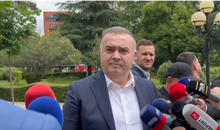
Socialist MP: I would gladly go to jail if a vote was bought
2025-05-29 12:30:58

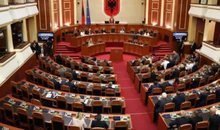
DP demands 60 minutes of debate in plenary session: Change the agenda
2025-05-29 12:07:53

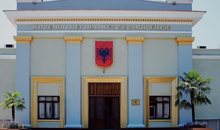
New Parliament/ 82 MPs who will be absent from September
2025-05-29 11:26:35

DP demands repeat elections in Tirana district
2025-05-29 11:09:48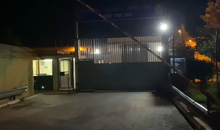


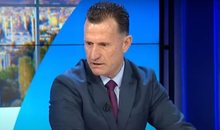
Investigations for Meta, lawyer: SPAK with political agenda
2025-05-29 10:30:41
Sentenced to 1 year in prison, Ervin Salianji requests parole
2025-05-29 10:24:35
SPAK strikes long-standing cigarette smuggling network with Customs' blessing
2025-05-29 10:08:47
Elon Musk leaves the Trump administration
2025-05-29 09:54:09
Accident in Kurbin/ Pedestrian dies after being hit by vehicle
2025-05-29 09:46:26

World Bank Report: 20% of Albanian population in poverty by 2025
2025-05-29 09:31:38
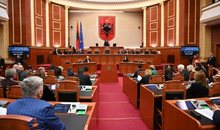
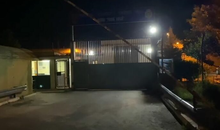

11 things people with high IQs do that they pretend to like, but actually hate
2025-05-29 08:47:46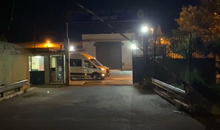
TNT explosion inside the Fushe Kruja prison compound
2025-05-29 08:47:39
Horoscope, what do the stars have in store for you today?
2025-05-29 08:27:39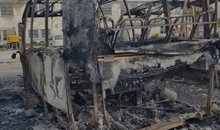
Fire in the bus park in Lushnja, four of them burned down
2025-05-29 08:12:48
Weather forecast, how temperatures will change during the day
2025-05-29 08:02:11
Morning Post/ In 2 lines: What mattered yesterday in Albania
2025-05-29 07:48:20
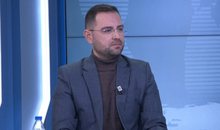
DP official: International reaction to the elections expected within two days
2025-05-28 22:43:54

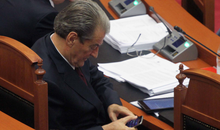
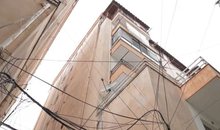

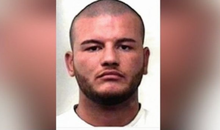

Marco Rubio warns of massive visa freezes for foreign officials
2025-05-28 21:12:04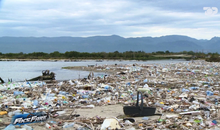

DP demands the repetition of the elections in the region of Fier
2025-05-28 20:52:44

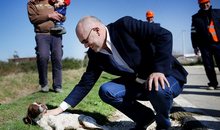
Government, 5 million euros to build a luxury dog hotel
2025-05-28 20:01:58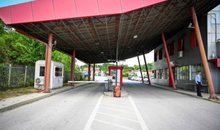

Trump: Will know in two weeks whether to end Ukraine war after Putin call
2025-05-28 19:40:52
